
Top insights from the Endpoints at ASCO McKesson leadership panel

Guided by our values, we are an impact-driven organization that improves care in every setting – one product, one partner, one patient at a time.
Through our core commitments, we are leveraging our scale for the greater good, such as serving the needs of our stakeholders, donating back to our communities, protecting our planet, working with policymakers, and more.
Every year, we publish updates to our commitments through our Impact Report.
Download Our Impact ReportOur businesses bring together leading technologies, innovative solutions and hands-on expertise to support the entire healthcare ecosystem.
We distribute pharmaceuticals and medical supplies to healthcare settings across North America, from pharmacies and hospitals to doctors’ offices and clinics.
We help to ensure the financial wellbeing of pharmacies and health systems and support a stable work environment for their employees.
We provide research, insights, technologies and other support to help address challenges in cancer and specialty care.
We provide a suite of solutions designed to address access, affordability and adherence challenges by bridging the gaps between biopharma companies, pharmacies, providers, and payers to help patients get on and stay on their medications.
We offer solutions that enable employers, payers, health-plan brokers and government agencies to provide lower-cost options for prescription medications and therapies.
We help to ensure the financial wellbeing of pharmacies and health systems and support a stable work environment for their employees.
Every year, we publish updates to our commitments through our Impact Report.
Download Our Impact ReportPharmacists play a vital role in protecting the health of rural and underserved communities.
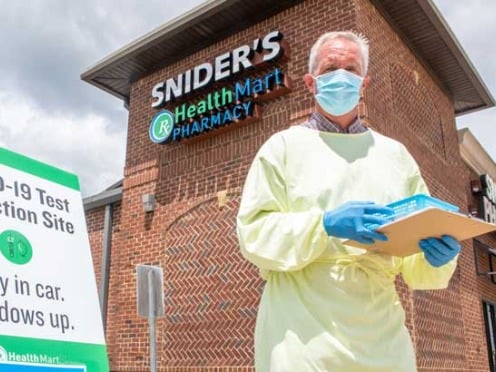
Read time: 4.5 minutes
What can your zip code tell you about your health?
If you think the two aren’t connected, you’re wrong. There are some surprising connections between where you live and your personal health. You might be amazed at some of the factors that make this true (like living in a small town), but turns out your local pharmacist could make a meaningful difference in how those factors impact your health.
Having an address in a rural area or an economically challenged area could mean a patient has limited access to quality providers and services. For example, if your town doesn’t have a local hospital or clinic and you don’t have reliable transportation, getting to the doctor can be a challenge. If your community has limited options for jobs, paying for prescriptions or visits can also be hard.
“Sixty percent of our community pharmacies serve vulnerable or underserved populations,” said Nancy Lyons, BSPharm, MBA, CDE, chief pharmacist, Health Mart. “Independent pharmacies are led by high-performing pharmacy teams, often called upon to take on multiple roles – all in service to providing better care for their patients.”
As community health professionals map out COVID-19 cases against zip codes with vulnerable populations, the data is revealing the significance of resources found in metropolitan versus remote areas. These disparities matter, especially in times of a pandemic. Protecting and prioritizing vulnerable populations comes naturally to pharmacies in rural areas.
For perspective, roughly nine out of 10 Americans live within five miles of a community pharmacy, according to research. And an independent pharmacy is filling nearly 50,000 prescriptions a year. That is a considerable charge for a small business and it’s more common than you may think. The third-largest chain of pharmacies in the U.S. is comprised of independently owned pharmacies. This group, Health Mart, is made up of some of the top performing pharmacies in the nation.
An often-overlooked healthcare provider, community pharmacists must complete intensive education programs before passing pharmacy board exams, with many holding advanced Doctor of Pharmacy (Pharm D) degrees. These health, wellness and medication experts and their staff are vital to your health. In rural areas, community pharmacies are typically handed down from generation to generation – some even celebrating 100-plus years of service. In many communities, the pharmacist may be the only healthcare provider available.
Pharmacists are accessible in rural and underserved areas and can provide constant care, often without an appointment. And pharmacists are one of the most trusted healthcare professionals, according to a recent Gallup report. The trust a pharmacist and their staff build in rural communities resonates for decades. That trust and credibility are vital to a thriving patient-pharmacist relationship.
“Sixty percent of our community pharmacies serve vulnerable or underserved populations. Independent pharmacies are led by high-performing pharmacy teams, often called upon to take on multiple roles – all in service to providing better care for their patients.”
Spending time with patients, knowing them by name – it’s all part of the community ethos and village mentality. They live in the same town, attend the same place of worship, root for the same high school football team, and experience the same challenges as patients in their community. This cultural immersion empowers community pharmacies to close health equity gaps. To these pharmacists, they’re not just patients. They’re neighbors. And they’re making a difference in the fight against COVID-19.
In rural communities, an independent pharmacy is often the only defense against healthcare desertification. A patient in Oxford, New York – population 3,901 – shares the value his local pharmacy brings to his quiet, Amish community.
“Being a customer of Bartle’s is like being a part of their family, which is exactly how they treat everyone,” said Sean Kelly, a customer at Bartle’s Health Mart Pharmacy. “They have opened up for me in the middle of the night when I’ve needed prescriptions in an emergency. It’s comforting coming here because I know I’m going to be taken care of.”
Pharmacy coronavirus test collection sites are now serving rural communities to help the sick and to help officials monitor for outbreaks in places extra care may be needed. It’s an essential role to be filled in the response to COVID-19. These frontline leaders could head off a potential outbreak in an area not equipped.
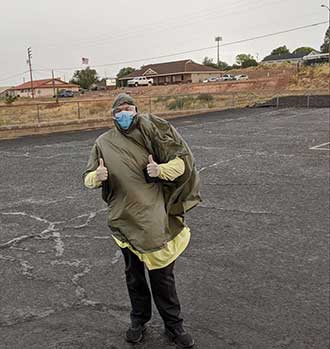
Jordan Call, owner, CEO and pharmacy manager of Call’s Community Pharmacy in Snowflake, Arizona, dresses in full PPE as he prepares to administer onsite COVID-19 tests.
Pharmacist Jordan Call opened a community pharmacy on January 1, 2020 in Snowflake, Ariz. As you can imagine, a few short months after the grand opening, he quickly volunteered to begin COVID-19 test collections in his town of nearly 6,000. His dedication to the city, in a time of crisis, brought fast attention from the highest levels. Arizona senator Sylvia Tenney Allen recognized his efforts while giving back to his small town. This COVID-19 testing program offers results in three to five business days and patients are tested free of charge – an essential service for this community.
And there are many more frontline heroes coming out from behind the pharmacy counter. Because when faced with a widespread pandemic, the government said: let’s use pharmacists.
“We’re collecting self-administered tests every 15 minutes in Chelsea, Alabama,” said Doug Snider, owner and pharmacist in charge at Snider’s Discount Health Mart Pharmacy. “We’re the only government-supported testing location for miles. The community response to our hard work has been unbelievable.”
What rural communities can expect before and after COVID-19 is a local, trusted and caring pharmacist to support them when other sources of quality care may be absent. Pharmacists fill the healthcare gaps in their neighborhoods and play an integral role in addressing social determinants of health. Whether that’s offering low-cost immunizations or equipping a community to face a pandemic, just call your hero in the white coat – they’re there for you no matter how far out you live.

Top insights from the Endpoints at ASCO McKesson leadership panel
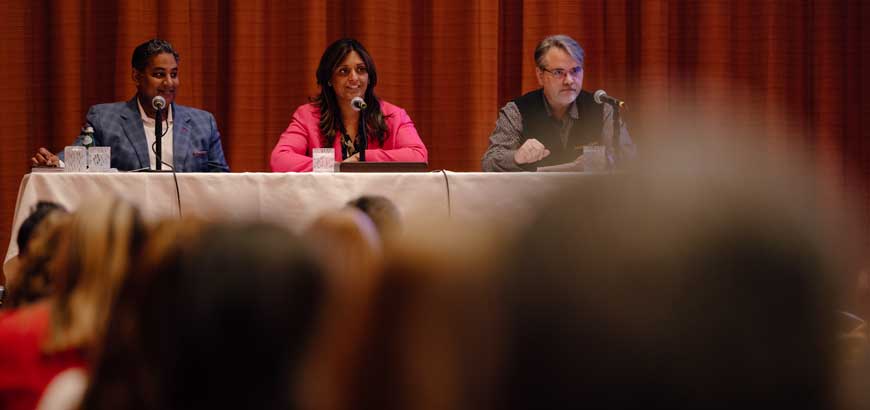
Insights and Takeaways for The Next Chapter in Specialty Medicine from Asembia AXS25
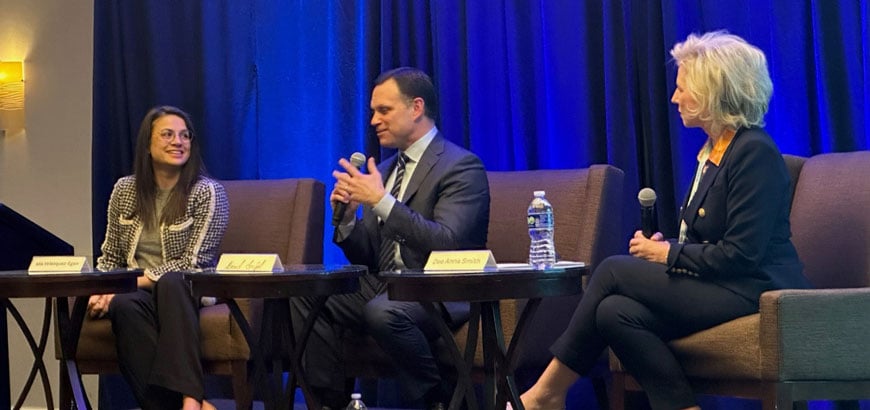
Enhancing patient access and engagement in clinical trials.
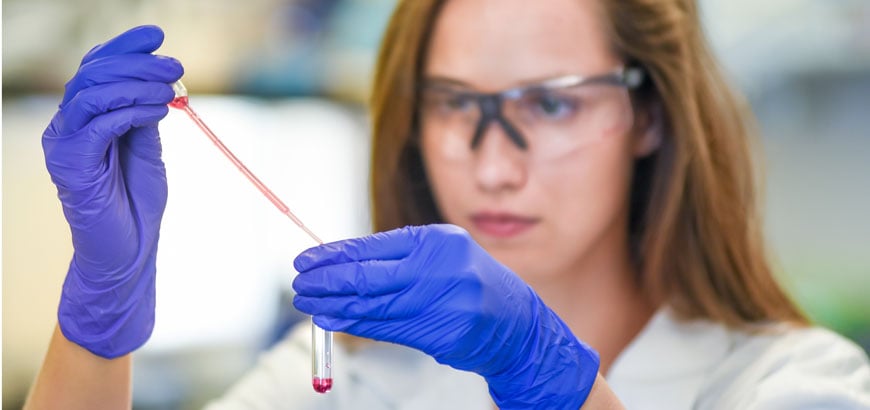
Learn how InspiroGene is helping deliver revolutionary cell and gene therapies to patients in need.
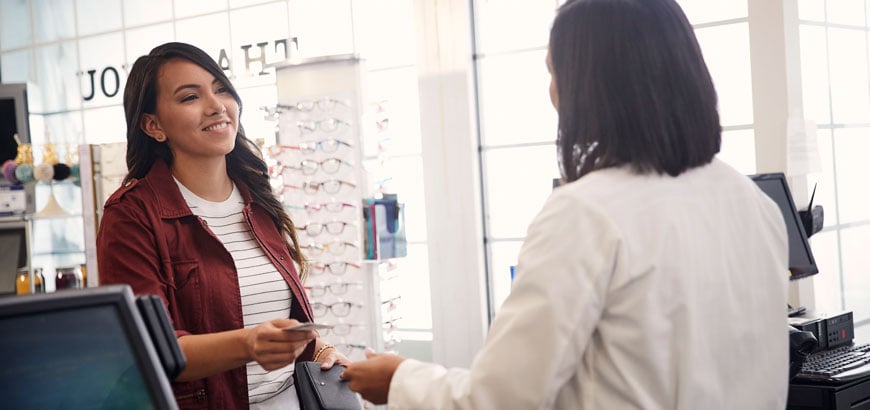
Insights from the 2025 CoverMyMeds Medication Access Report, From Barriers to Bridges
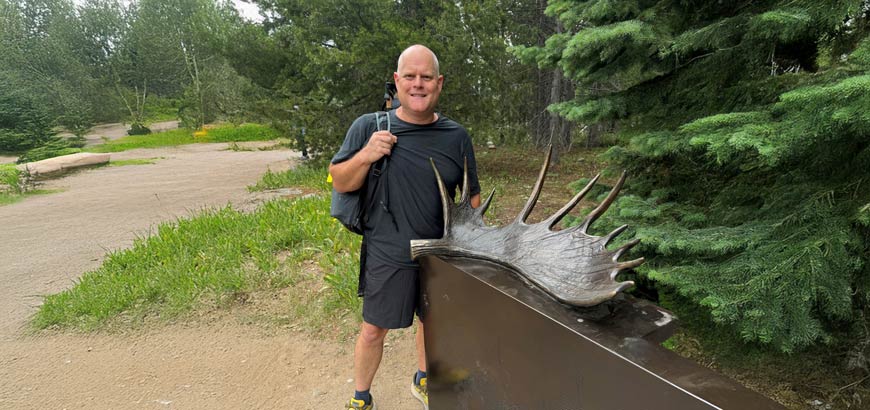
Learn about the crucial role Sarah Cannon Research Institute (SCRI) played in helping a patient overcome prostate cancer.
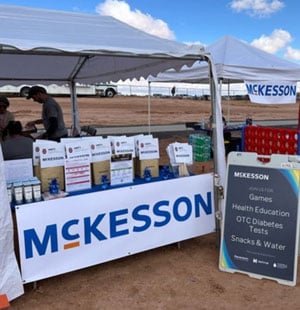
For two years in a row, McKesson has partnered with customers and industry partners to bring health education and awareness of resources to members of the Navajo community.

Learn more about RxOwnership, McKesson’s strategic consultants who help independent pharmacy owners navigate challenges, optimize operations and achieve financial health.
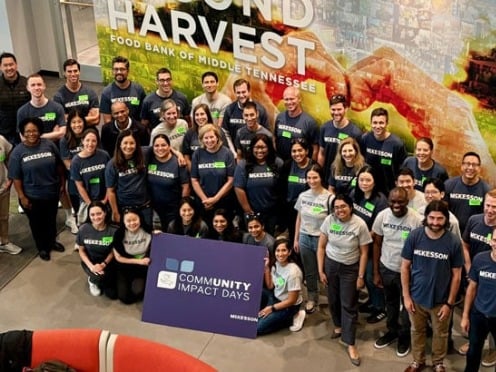
From team volunteering to enterprise-wide events like GivingTuesday and Community Impact Days, our employees raised the bar in 2024 by making a difference in the communities where we live, work and serve.
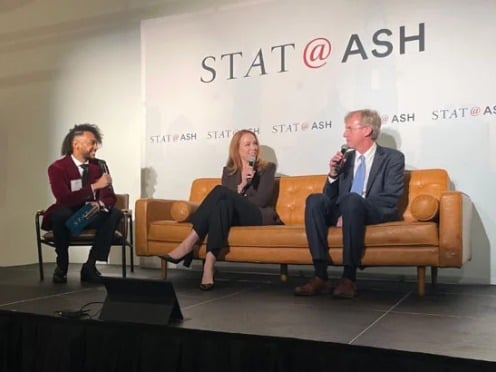
During the recent STAT @ ASH event in San Diego, panelists explored the role of community oncology in advancing precision medicine for cancer care.